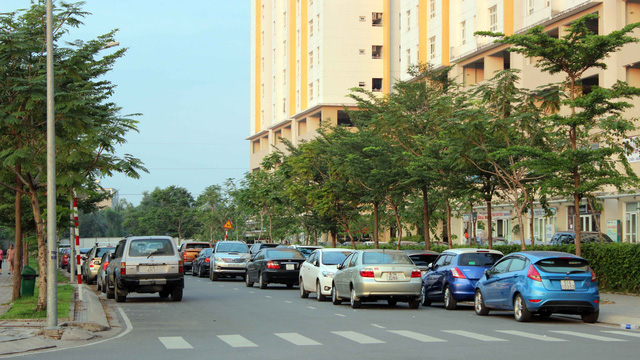The officer of a joint stock bank in Hanoi said the bank has foreclosed on hundreds of cars this year, but the number of cars sold has been very modest.

Some years ago, when the economy was growing well, people rushed to borrow money from banks to buy cars and apartments. In 2016-2019, the loans to fund car purchases grew by 40 percent per annum.
Banks applied measures to lure borrowers, accepting to lend up to 80-90 percent of the cars’ value.
As many borrowers cannot now pay debts, banks have to foreclose on cars, which are collateral for loans, to sell for debt collection.
The officer said it is most difficult to sell passenger cars with 16-45 seats. As travel demand has decreased in Covid-19, many transportation firms have had to suspend their operation. Because of the decreasing travel demand, no one wants to buy these vans.
As cargo transportation demand is on the decrease, people aren't think of buying trucks now. As for sedans, both used and brand-new cars have seen prices drop sharply, while the supply is plentiful.
| As cargo transportation demand is on the decrease, people aren't think of buying trucks now. As for sedans, both used and brand-new cars have seen prices drop sharply, while the supply is plentiful. |
An analyst said that the cars put up for sale by banks are mostly ones voluntarily handed over by clients because they cannot sell themselves for a good price, or are ones foreclosed on by banks.
In many cases, before handing over the cars to banks, the owners of the cars have changed interior equipment or replaced parts with low-quality components. Banks are not able to recognize the changes.
In general, banks sell cars at first-price sealed-bid auctions. Information about the cars is limited. Banks only give information on the brand, year of manufacturing, color, vehicle registration number, mileage and starting prices. Buyers also cannot access the cars before attending the auctions.
Le Quoc Huy, the owner of a business in Thanh Tri district in Hanoi, said he wanted to buy a Chevrolet Van 2017 series which had the starting price of VND185 million from a bank, but he later gave up the plan.
“I intended to buy this van to transport cargo within the city. But I was not sure about the status of the van, whether its components were original,” he explained. “If I have to spend more money to repair the van, it would become too expensive. So, I finally decided not to buy the car."
The man admitted that many cars cannot find buyers though they have been put up for auctions four or five times, with the starting price decreasing by 5 percent each time.
A car dealer said he doesn’t intend to buy these cars. “The used car supply is still high. It is not easy to sell used cars now,” he explained.
VIB, Sinhan Bank, Techcombank, VP Bank and TP Bank are the biggest lenders funding car purchases.
Analysts said, as the economy is in difficulty because of Covid-19, credit has been growing very slowly as businesses don’t have high demand for loans at this time to expand production.
As a result, banks are trying to promote consumer credit. Tens of trillions of dong worth of capital have been reserved to fund house and car purchases.
Car buyers can borrow money at interest rates of 6.5-9.5 percent per annum for 6-12 month loans.
Luong Bang

Selling assets to pay debts, 'Boss Duc' still cannot escape difficulties
The enterprise of Doan Nguyen Duc, or Boss Duc as he is known, is still in doubt, though the businessman, once the richest man in Vietnam, has sold many assets to restructure his company.

Organisations rush to sell Sacombank shares to retrieve debts
Some organisations have rushed to sell shares of Sai Gon Thuong Tin Commercial Joint Stock Bank (Sacombank) to retrieve bad debts, but it was not easy to find buyers agreeing with the offered price.
